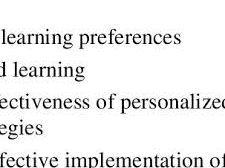In the ever-evolving landscape of the job market, finding the perfect career opportunity can be akin to searching for a needle in a haystack. That’s where headhunter come into play. These skilled professionals act as the bridge between talented individuals seeking their dream jobs and organizations in pursuit of top-notch talent. In this blog, we’ll delve into the world of headhunters, exploring their vital role and the value they bring to both job seekers and employers.
1. What Does a Headhunter Do?
A headhunter, often referred to as an executive recruiter or talent acquisition specialist, is a professional who specializes in identifying, attracting, and matching talented individuals with suitable job openings. They go beyond traditional job postings and use their extensive networks and industry knowledge to connect the right candidates with the right positions. Whether you’re a job seeker looking to advance your career or an employer seeking the perfect fit for your team, a headhunter can be your ace in the hole.
2. The Benefits of Working with a Headhunter:
- Access to Hidden Opportunities: One of the primary advantages of partnering with a headhunter is gaining access to hidden job opportunities that are not advertised publicly. These could be exclusive roles or positions with highly sought-after organizations.
- Customized Career Guidance: Headhunters provide personalized career guidance based on your skills, experience, and aspirations. They can help you identify the career path that aligns with your goals.
- Save Time and Effort: Job seekers can save valuable time and effort by letting a headhunter handle the job search process. They do the legwork of identifying suitable positions, preparing you for interviews, and negotiating offers.
- Top Talent Acquisition: Employers benefit from headhunters’ expertise in identifying top talent. They tap into their networks to find candidates with the right skills and cultural fit for the organization.
- Confidentiality: For professionals exploring new opportunities while employed, headhunters offer a confidential channel to explore job options without jeopardizing their current positions.
3. The Headhunter-Seeker Relationship:
Building a successful relationship with a headhunter requires open communication, trust, and collaboration. Job seekers should be clear about their career goals and preferences, while employers should provide detailed job requirements. Effective communication ensures that headhunters can make the right connections.
4. The Role of Industry Specialization:
Many headhunters specialize in specific industries or sectors. This specialization allows them to have an in-depth understanding of the unique needs, trends, and challenges within that industry. Whether you’re in finance, technology, healthcare, or any other field, working with a specialized headhunter can provide a significant advantage.
5. The Future of Headhunting:
As technology continues to shape the job market, headhunters are adapting to leverage data analytics, artificial intelligence, and other tools to identify the best talent. The future of headhunting promises more efficient and data-driven recruitment processes.



